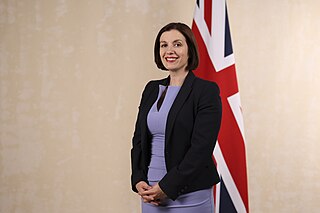
Sign this open letter to Bridget Phillipson
Dear Bridget Phillipson,
We write as academics to urge the government to implement the remaining provisions of Higher Education (Freedom of Speech) Act (HEFOSA), which were due to come into force on 1 August 2024.
We think that HEFOSA is a vitally important piece of legislation. Free speech duties on universities have long been neglected, despite being enshrined in law. The Act provides two mechanisms for enforcing those duties: an Office for Students complaints scheme, and a new right to make claims for losses suffered as a result of compliance failures. These mechanisms offer protection for academics and students who would otherwise have no access to justice except through a costly and gruelling Employment Tribunal. Their future is now in jeopardy.
Your case for halting commencement of HEFOSA was based on two claims, both open to question. First, you said that the Act would be “burdensome on providers”. One might think that some financial burden on universities was an acceptable price to pay for academic freedom. But leaving that aside, it is simply not true that the Act would be burdensome on providers. A 2022 Department for Education impact assessment put the cost of compliance with the Act at £4.7 million – small change compared, for instance, to the £550 million English universities spent on Access and Participation in 2020-21. The Act would also save universities money on court costs, by providing a speedy and efficient way of resolving what would otherwise be protracted legal disputes.
Second, the Department for Education has expressed concern that HEFOSA “could protect those using hate speech on campuses, and that it could also push providers to overlook the safety and well-being of minority groups, including Jewish students”. This concern is understandable, but misplaced. English law already provides strong protections against harassment and incitement to hatred, which override free speech rights. And it is hard to see how the Act could threaten the safety of minority groups, unless “safety” is understood as an inner feeling of security, in which sense it cannot, morally or in law, override the right to free speech. Incidentally, the Act does not oblige universities to tolerate anti-Semites or to give a platform to Holocaust deniers, as has frequently been claimed. It does, however, protect freedoms which Jewish staff and students have particular reason to appreciate. “At a time when Jewish students have been experiencing increasing hostility on campus”, writes Prof. David Abulafia, “the Act offers the guarantee they need that universities will recover their role as the home of civilised debate in which they and their invited guests can express their own opinions without fear of intimidation.”
The decision to halt HEFOSA appears to reflect the view, widespread among opponents of the Act, that there is no “free speech problem” in UK universities, that the very idea of such a problem is a fiction put about to divert attention from bigger issues. Nothing could be more false. Hundreds of academics and students have been hounded, censured, silenced or even sacked over the last 20 years for the expression of legal opinions, as AFAF’s “banned list” and CAF’s “threats to freedom” monitor both show. And these documented cases are only the tip of the iceberg; the widespread silencing of viewpoints is incalculable. A report published earlier this year by the Academic Freedom Index placed the UK sixty-sixth in the global league table of academic freedom, lower than Peru, Burkina Faso and Georgia. This state of affairs has serious consequences for all of us. The suppression of university research into the effects of puberty blockers facilitated one of the great medical scandals of our age, as the Cass Review makes clear.
Academics and students of all persuasions need the protection afforded by the Freedom of Speech Act. We are happy to meet with you to discuss our concerns.
Yours sincerely,
Edward Skidelsky, director of the Committee for Academic Freedom
Dennis Hayes, director of Academics For Academic Freedom
Lucinda Platt, founder member of the London Universities’ Council for Academic Freedom
William Mackesy, director of Alumni For Free Speech.
Sign the letter on Google Forms.
This photo is licensed under the United Kingdom Open Government Licence v3.0.

